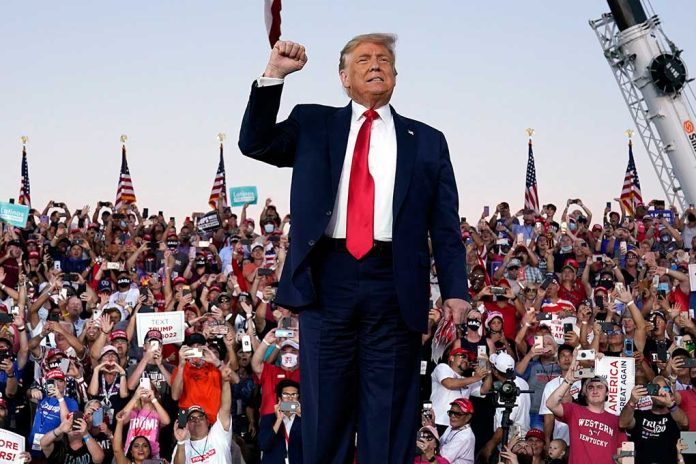
Donald Trump’s victory in the presidential election brings significant changes to federal health agencies, with Robert F. Kennedy Jr. potentially playing a key role in reshaping America’s health policies.
At a Glance
- Trump wins presidency, impacting federal health agencies and related industries.
- RFK Jr. proposed as potential key figure in health, medicine, and food policy.
- Plans include reforming public health institutions and reducing system costs.
- Focus on investigating chronic illnesses and restructuring CDC and NIH.
- Potential overhaul of FDA, CDC, and NIH to combat alleged corruption.
Trump’s Victory and Health Care Agenda
Donald Trump’s recent presidential victory has set the stage for significant changes in America’s health care landscape. While the economy and immigration took center stage during his campaign, Trump’s plans for health care reform are now coming into sharper focus. The President-elect has promised to reshape federal health programs and reduce system costs, signaling a new direction for the nation’s health policies.
Trump’s approach to health care reform appears to be more nuanced than in his previous term. He has stated that he does not intend to repeal the Affordable Care Act outright, but rather aims to reduce costs within the existing framework. This strategy could potentially address long-standing concerns about healthcare affordability while maintaining some continuity in the system.
Robert F. Kennedy Jr.’s Potential Role
In a surprising move, Trump has hinted at a significant role for Robert F. Kennedy Jr. in his administration’s health policy team. Kennedy, known for his outspoken views on public health issues, could be positioned to lead major reforms in key health agencies.
“We can add a few names like Robert F. Kennedy Jr.,” Trump stated, adding, “And he’s going to help make America healthy again… He’s a great guy and he really means that he wants to do some things, and we’re going to let him go to it.”
Kennedy has outlined ambitious plans for overhauling the Food and Drug Administration (FDA), Centers for Disease Control and Prevention (CDC), and National Institutes of Health (NIH). His focus appears to be on eliminating what he perceives as corruption within these agencies and improving their effectiveness in addressing public health concerns.
In a candid chat with Joe Pags, RFK Jr. explains his shift to Trump’s camp, tackles health and regulatory reform, and addresses the Democratic Party’s legal battles to keep him on swing-state ballots.https://t.co/Kt2MOCAyVX
— 1200 WOAI (@1200WOAI) November 5, 2024
Proposed Reforms and Priorities
The proposed reforms under the Trump-Kennedy health initiative are far-reaching. They include plans to form a commission to investigate chronic illnesses, with a particular focus on food policy and environmental factors. This aligns with Kennedy’s criticism of current food standards and his desire to eliminate certain departments within the FDA.
Another priority appears to be addressing the high cost of prescription drugs. Trump has criticized pharmaceutical pricing and promises to increase transparency in drug pricing and negotiations. The administration also plans to crack down on pharmacy benefit managers, which could significantly impact how medications are priced and distributed.
Challenges and Controversies
While the proposed changes have garnered support from some quarters, they are not without controversy. Vice President Kamala Harris has criticized Kennedy’s views, describing them as “junk science” and questioning his suitability for setting health care policy. This highlights the potential for significant political opposition to the proposed reforms.
Furthermore, the extent of the proposed changes may face legal and logistical hurdles. Kennedy has stated that he does not plan to eliminate any agencies without congressional approval, which could potentially slow down or limit the scope of the reforms. The success of these initiatives will likely depend on the level of support the administration can garner in both houses of Congress.
Sources:
- Donald Trump returns to the presidency with big ambitions to shake up health care
- RFK Jr. already has big plans for FDA, CDC under Trump
- Trump says he will give RFK Jr. a major health role. Here’s what that means for patients, drugmakers







